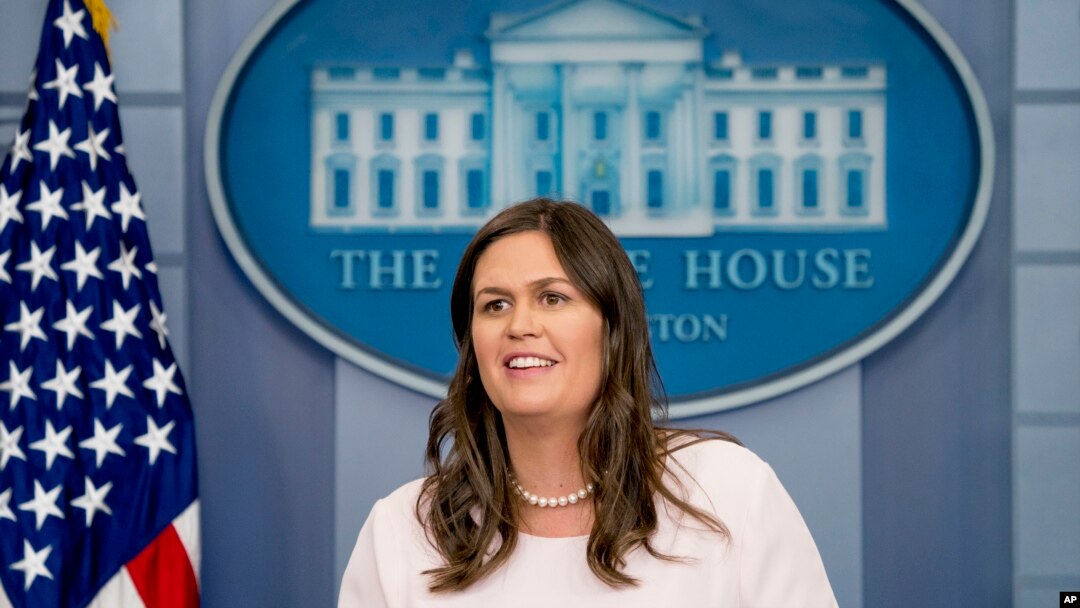President Donald Trump on Monday declared he has an "absolute right" to pardon himself and then also tweeted his assertion that the federal government investigation into ties between his 2016 election campaign and Russia is "totally unconstitutional."
While Trump has frequently ignored established norms and challenged the understood limits of presidential powers, his latest comments are viewed by some legal scholars as unprecedented and testing constitutional boundaries.
"I was shocked" by Trump’s tweets, said Susan Low Bloch, a law professor at Georgetown University.
"No president has ever tried it," she told VOA News. "It’s unlikely the president can pardon himself. I think the court would say no" and if he did give himself a pardon, "most congresses would impeach him."
Bloch also notes when most people accept a pardon "it’s an admission of guilt," thus it would be a bad idea for Trump to pursue such a course of action.
'Absolutely constitutional'
The professor, who has testified before the Senate on whether a president can be indicted and tried while in office, says the special counsel is "absolutely constitutional."
Another constitutional scholar, Keith Whittington at Princeton University, said, "I think it is important to note that the president’s comments reference serious arguments that are being debated by legal scholars, but these are difficult and unusual constitutional questions that would ultimately be answered in the courts."
According to Northwestern University Law Professor Andrew Koppelman, "Trump's position on pardons is consistent with the Constitution's text, but inconsistent with the overall structure. It means that the President could commit capital treason, or any other federal crime, and then immediately pardon himself.
"It means that he could commit murder in the White House," Koppelman said. "It makes no sense within the Constitution as a whole."

Description: White House press secretary Sarah Huckabee Sanders smiles while speaking to the media during the daily press briefing at the White House, Monday, June 4, 2018, in Washington.
Asked by reporters Monday about Trump’s comment on his ability to pardon himself, White House Press Secretary Sarah Sanders repeatedly replied: "The president hasn’t done anything wrong."
Whittington, a professor of politics, told VOA News, "The courts have recognized some implicit limits on the pardoning power in the past and they would have to assess whether a self-pardon is legally valid or falls outside the scope of the pardoning power. It is not obvious how the courts might respond to such an unusual pardon."
Sanders also replied that Trump is "certainly not" above the law when asked by a reporter if the president believes he occupies a unique legal immunity.
Commenting Monday on Twitter, Trump also repeated his branding of the yearlong probe led by special counsel Robert Mueller as a "never ending witch hunt."
Trump attorney Rudy Giuliani on Sunday said the president, who has pardoned three conservative figures who have been convicted of crimes, has "no intention of pardoning himself." But the former New York City mayor and federal prosecutor added that "it would be an open question" whether he could do so, while acknowledging there would be a political firestorm in the United States if he did.
FILE - President Donald Trump's lawyer Rudy Giuliani speaks to reporters on the South Lawn of the White House in Washington, May 30, 2018.
"Pardoning himself would be unthinkable and probably lead to immediate impeachment," Giuliani said on NBC’s "Meet the Press."
Letter to special counsel
Trump lawyers contended in a 20-page letter to Mueller in January, before Giuliani joined the president’s legal team, that he cannot be compelled to testify through a subpoena and argued he could not have obstructed justice by firing FBI Director James Comey when he was leading the Russia investigation because as president Trump has unlimited power to terminate the investigation.
Giuliani called the letter, first disclosed Saturday by The New York Times, "very, very persuasive." He said Trump’s lawyers would contest in court any attempt to subpoena Trump to answer questions.
FILE - Former FBI director James Comey speaks during an interview with Axios Executive Editor Mike Allen at George Washington University in Washington, April 30, 2018.
Within days of ousting Comey, Trump said that when he dismissed him he was thinking of "this Russia thing," because he thought it was a made-up excuse by Democrats looking for a reason for Trump’s upset win over former Secretary of State Hillary Clinton. Last week, Trump said that was not the reason but offered no other explanation.
Long-standing Justice Department rules have concluded that a sitting president cannot be indicted for criminal wrongdoing. Mueller, however, could lay out his findings in a report that could eventually be turned over to Congress, where lawmakers could, if they decided there was wrongdoing by Trump, pursue his impeachment.
But it is "a constitutionally unfortunate place that we’re in" now, as a result of Trump’s tweets Monday, said Bloch, the Georgetown law professor.

